Diving into Pronty: Fishy Adventure
This underwater Metroidvania makes for a good setting but doesn't rise to the top of the genre
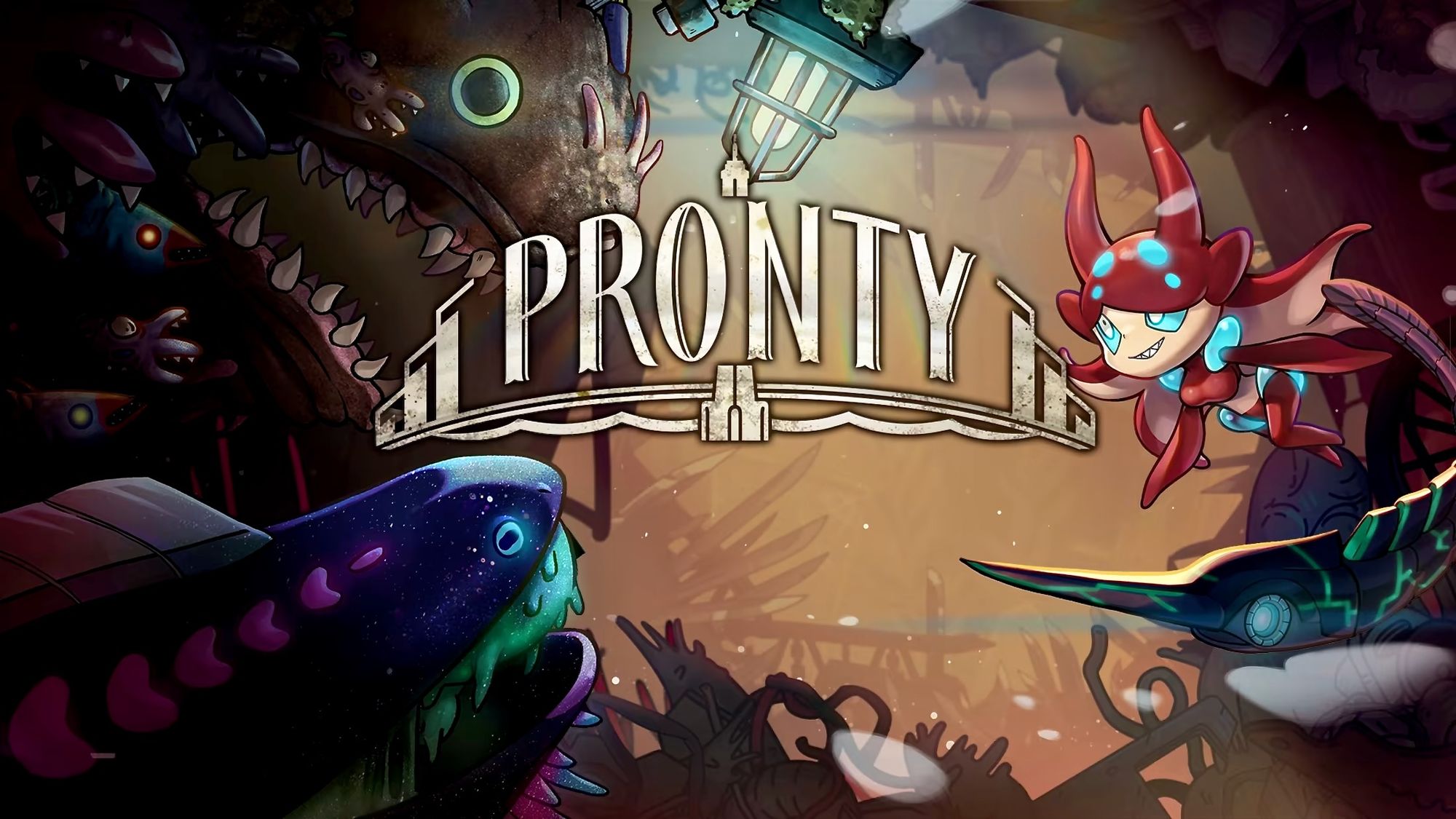
It’s always a pleasure when warmly received Steam titles make their way to the Switch, even if more than a year after their PC release. In this case, it’s Pronty: Fishy Adventure from Taiwanese indie studio 18 Light Games. Tokyo-based Happinet Corporation has done a wonderful job porting the game to Nintendo’s handheld; the performance is well optimised and looks gorgeous in both docked and handheld modes.
Imagine if Hollow Knight was remade in the depths of Bioshock’s Rapture and you’ll have a good idea of Pronty’s vibe. It’s a shame the final package doesn’t have the impact of either of those games, although it has its own charms.
Pronty’s story sees players submerged in the underwater metropolis of Royla, a futuristic utopia turned doomed Atlantis by marauding mutated sea creatures. Contaminated by hazardous marine waste, transfigured sea monsters ransack the city, leaving a scene of murky devastation.
On their first day on the job, Pronty is one the last remaining members of the Royal Guard. These are a group of protectors tasked with guarding and maintaining the city. Isolated from others and confused about what’s happened, Pronty sets out to find out who the enemy is and how to defeat them.
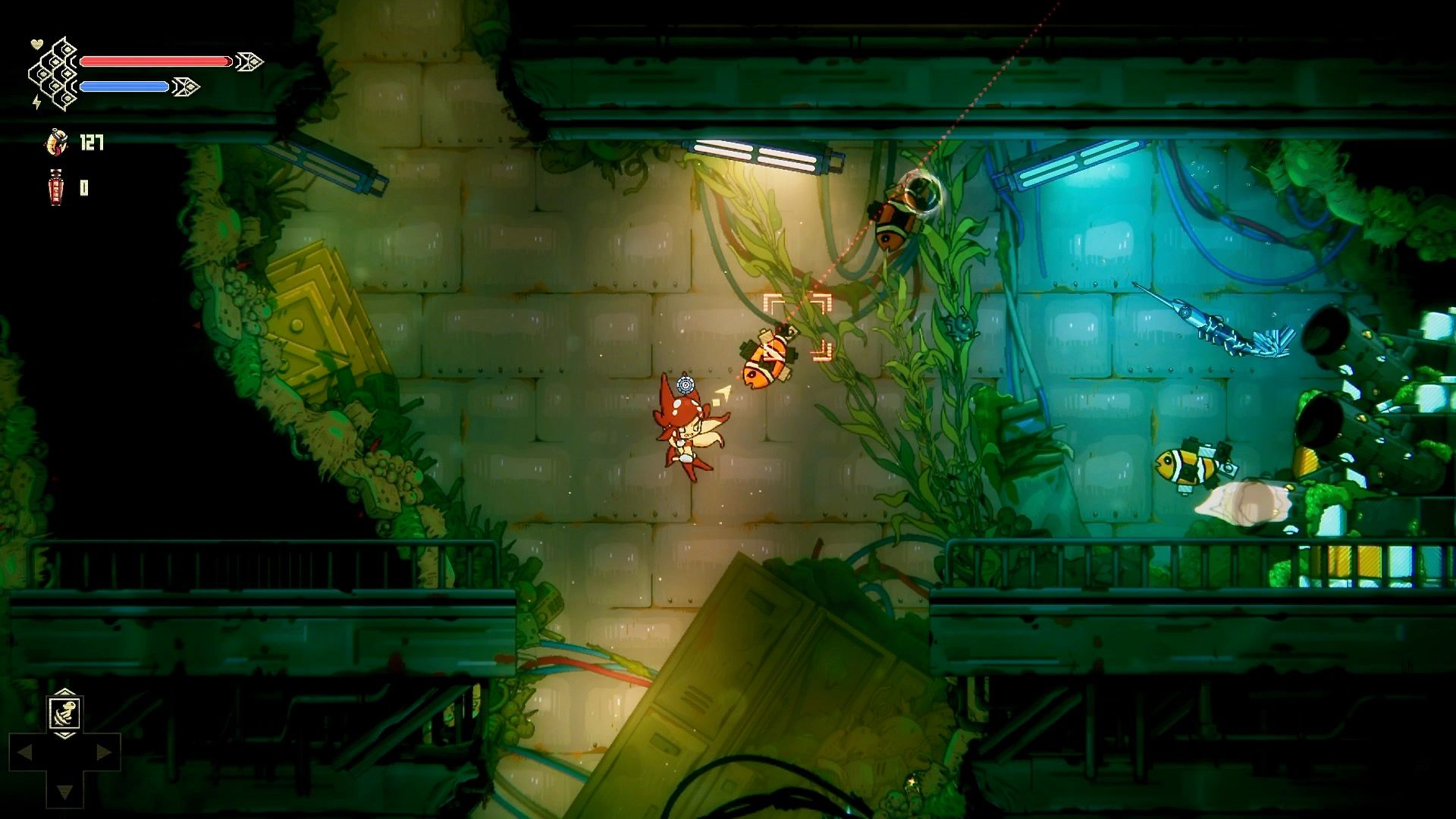
Without any weapons of their own, Pronty’s robotic swordfish companion, Bront, takes on the role of both weapon and companion. The multi-skilled Bront serves a variety of functions, providing ranged attacks, creating a spinning shield, and scanning objects to reveal lore during exploration.
The story unfolds through dialog between Pronty and Bront, and by finding pages of a compendium that grows throughout the game. There are definitely some Bioshock vibes here, with the tale of a once-great utopian underwater city, now lying in disrepair.
As an underwater Metroidvania, Pronty has complete freedom of movement to swim in all directions. As a result, the semi-open world twists and turns through maze-like passageways and vast open rooms. Things start in a pristine coral area before exploring an array of dingy subterranean tunnels, polluted wreckage, and abandoned underwater cities.
With that freedom to go anywhere and a generous amount of stamina, Pronty has a satisfying movement system. It makes navigating this sprawling and diverse underwater world a joy.
The enemies here are mutant sea creatures, bizarre hybrids of garbage and marine life. These include a menacing pair of false teeth that lurch around like a demonic shrimp and a Nemo-like clownfish with transparent garbage guts.
Defeated enemies will drop small floating pieces of trash called recyclables, which are then used as currency to unlock fast travel points and buy upgrades. Hoovering them up after taking out a school of enemies makes for an addictive core combat/reward loop.
Using Bront as a weapon plays much like a twin-stick shooter. Players aim with the right stick and use the triggers to fire the swordfish headlong into enemies. Holding down the trigger will cause Bront to spin around Pronty, forming a buzzsaw-like shield. Holding longer will also charge up a more powerful ranged attack.
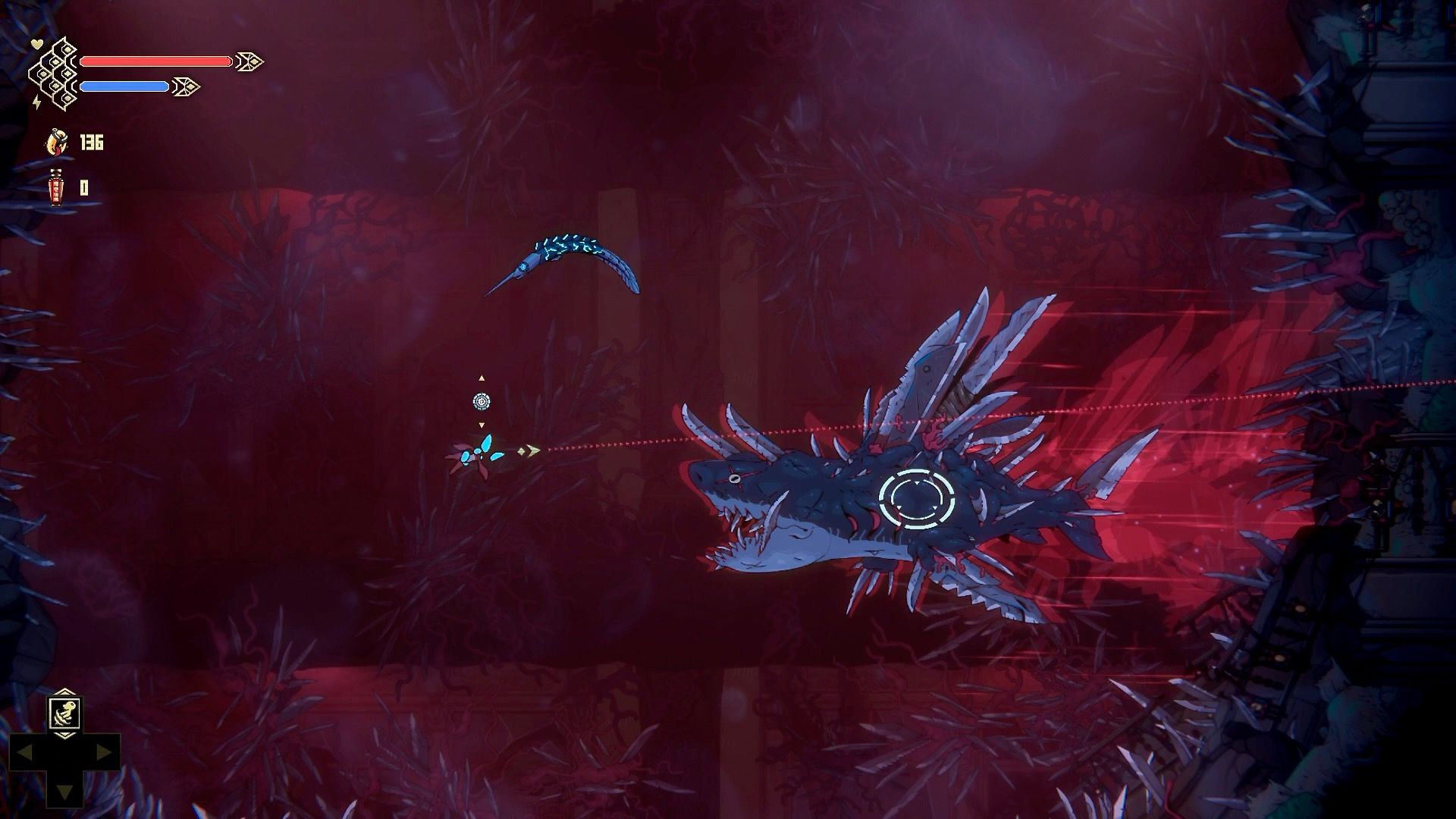
Like many combat-focused games there’s a dash that causes Pronty to briefly gain invulnerability while also passing through enemies. Doing this will tag the enemy with a target, and once defeated, Pronty will regain health. Pulling off this manoeuvre, while somewhat tricky, is immensely satisfying.
This is a great way to sustain health without relying on Pronty’s health vial, which gets refilled whenever players stop and take a nap at one of the coral bed save points. Known as Frontier Outposts, these areas have three functions: saving progress, creating fast travel locations, and providing memory boards to apply upgrades. Pronty has space for up to ten active perks at any one time, forcing players to strategise about how they wish to approach their build.
None of the perks have particularly game-changing powers though. Instead, they function more like stat boosts, such as increasing stamina or reducing the cooldown on charged attacks. This makes collecting and managing them somewhat arbitrary, which is disappointing. Alongside the upgrade perks, Pronty also receives stat boosts from vials, dropped by bosses. These provide more stat increases, such as increasing max health or max stamina.
The game uses ability gating to section off parts of the map. For example, one area is always dark, and only accessible once players have discovered the Light of Dawn upgrade. Some kinds of doors open only once players unlock the charged attack and are able to smash through them.
Designing areas to be inaccessible until players reach a certain power level is a well-known Metroidvania trope. There's no surprise in seeing it implemented here, it's just a shame that it’s so obvious.
The art design sometimes works against the level design here, as some walls are hard to distinguish in the murky water. A few times I would swim past an important passage opening, before finally realising it was there.
Pronty is a challenging game. Some of the bosses present a dramatic increase in difficulty and need hardcore combat skills and patience to defeat. Even on the easiest settings, I found several of the boss encounters punishingly difficult.
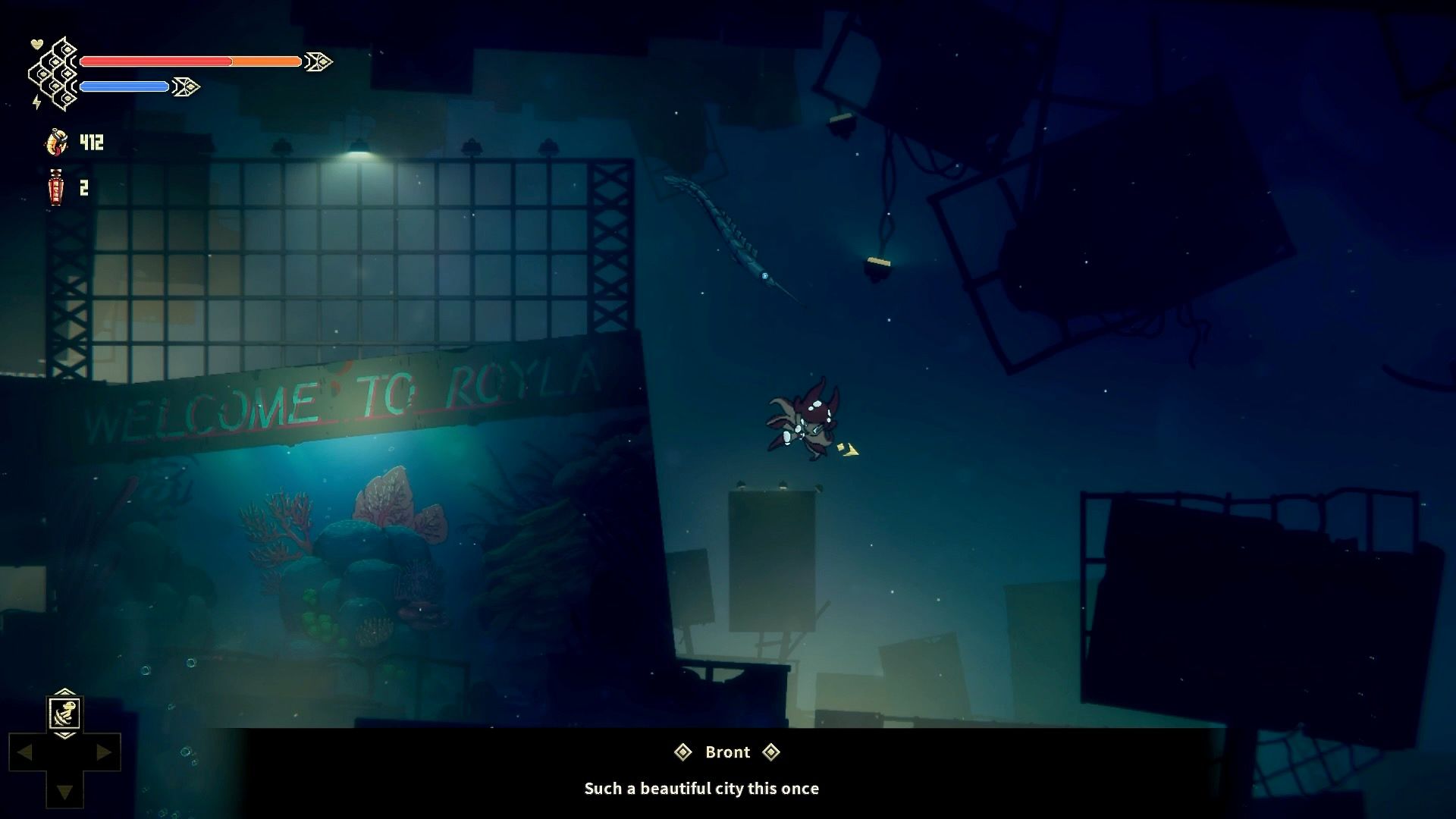
This spike in boss difficulty is problematic because most of the standard enemies are quite easy to defeat. With a combination of dashes and Bront’s powerful attacks, it’s trivial to take down most of the standard grunts.
But with bosses, there’s a sudden and almost unfair jump in difficulty. Given that many of these encounters gatekeep progress to the next area, players have no option but to practice repeatedly and eventually break through. While perfect for die-hards who love a good challenge, it’s sure to be a sticking point for players wanting a more casual or open-ended experience.
As far as visuals and sound go, Pronty is impressive. Performance is near flawless on the Switch in both handheld and docked modes. The art direction is gorgeous with lush hand-drawn backdrops and liberal use of parallax scrolling. The world depicts a variety of coral reefs, dilapidated underwater cities, and submarine caves, placing you convincingly in the game's world. The only quibble is that handheld mode fails to adjust text size, leaving subtitles and lore entries almost unreadable.
There’s a pervasive sound of filtered, gurgling water throughout every zone. Combined with excellent music, Pronty is an auditory treat. The music and atmosphere at times reminded me of SuperGiant’s classic, Transistor, with liberal use of low-pass filters and moody rumblings.
While the presentation is excellent, Pronty fails to be greater than the sum of its parts. As far as Metroidvanias go, this is run-of-the-mill stuff. Without a doubt, the setting is unique and the presentation is excellent, but like most things, the devil’s in the details. For example, the brief but constant loading times are an annoyance. Rather than a seamless world, almost every room fades to black upon leaving, creating a short pause in the gameplay as the next section loads. This breaks up the flow and makes traversal more of a chore than necessary.
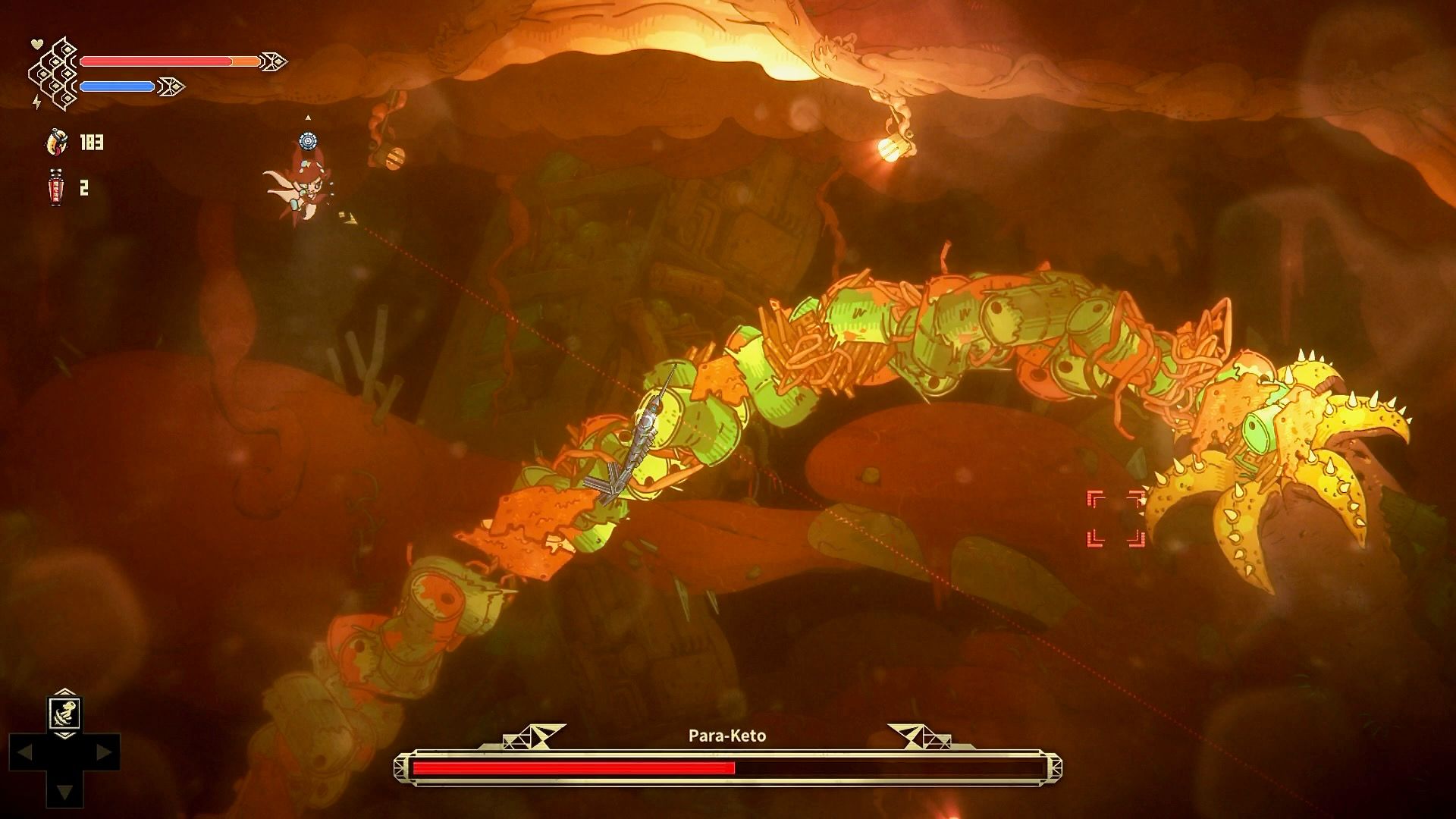
As mentioned before, handheld play on the Switch is already irksome due to the tiny text. While a patch could fix this, the combat itself remains an issue, with its reliance on a twin-stick targeting system. Holding the Switch in this way causes hand pain after a short while. Playing in docked mode with a pro-style controller is the only viable way to experience Pronty for long sessions.
For Switch owners longing for a new Metroidvania, there's plenty to sink some shark's teeth into here, as long as they’re happy to play in docked mode, and have the patience to endure some big swings in difficulty. While Pronty shows promise in the early going, ultimately it doesn’t do enough to swim in the same depths as the genre’s greats.
